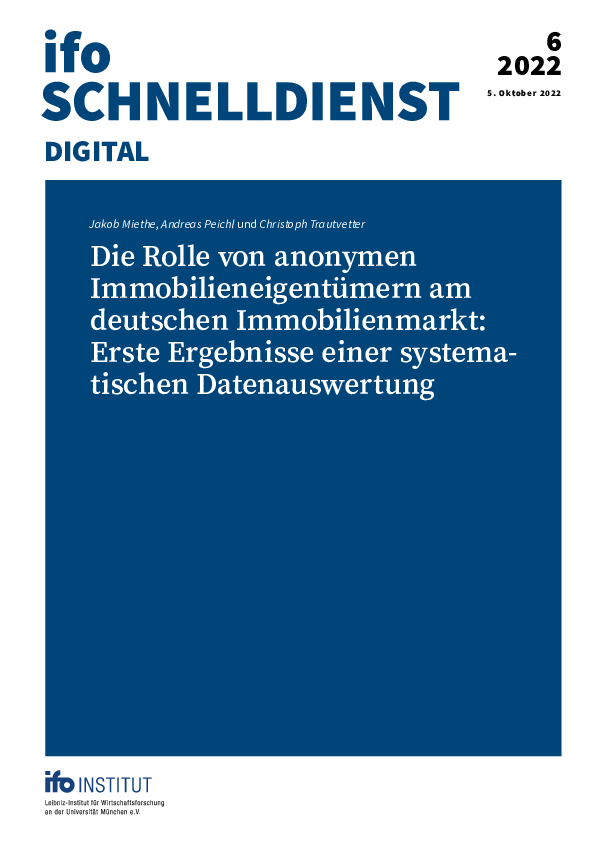The Role of Anonymous Property Owners in the German Real Estate Market: First Results of a Systematic Data Analysis
ifo Institut, München, 2022
ifo Schnelldienst digital, 2022, 3, Nr. 6, 01-06

Anonymity facilitates money laundering and makes it more difficult to enforce sanctions. Little is known so far about the extent and structure of anonymous real estate investments in Germany. The analysis of administrative data from five German states described here in cooperation with Welt am Sonntag shows that a systematic evaluation of owner data in the German real estate market is already possible today, both legally and technically. It provides valuable insights into supposedly anonymous real estate ownership and an essential basis for asset-related investigations for sanction enforcement and anti-money laundering. Initial results show that a large part of the German real estate market is transparent and domestically organized. However, as the complexity of real estate investments increases, the likelihood that real estate is held from abroad and from shadow financial centers increases sharply. In about 5% of our cases (about 1,000 companies), the evaluation of the ownership structure leads to a shadow financial center. More in-depth investigations of anonymous real estate owners from shadow financial centers would thus roughly affect 15,000 to 20,000 companies throughout Germany and would thus be much more comprehensive than previous efforts and sufficiently focused. By contrast, merely linking data from the land register with the transparency register was not sufficient to identify potentially problematic ownership structures.